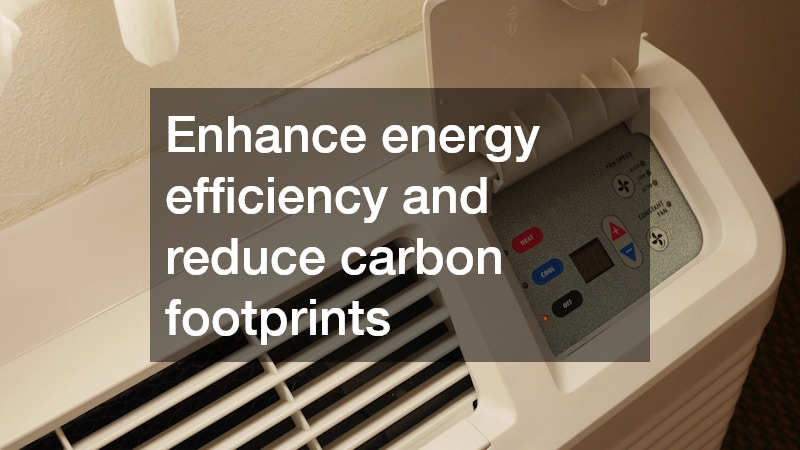
Why AC Companies Are More Important Than Ever
In today’s rapidly advancing world, air conditioning (AC) companies have become increasingly significant. Factors such as global warming, urbanization, and an increased focus on sustainable living drive the growing importance of these companies. As temperatures rise and comfort becomes essential, understanding the multifaceted role of AC companies is crucial.
How Do AC Companies Impact Energy Efficiency?
Advances in AC Technology
AC companies are at the leading edge of integrating innovative technologies that enhance energy efficiency. Modern AC units feature smart thermostats, variable speed air handlers, and advanced refrigerants that significantly reduce energy consumption.
As a result, energy savings are maximized, which contributes to lower utility bills for consumers.
These advancements help reduce the carbon footprint of AC systems, aligning with global efforts to address climate change. The Environmental Protection Agency reports that improved AC technology can reduce energy consumption by 20-50%. This evolution in technology ensures that consumers can enjoy comfortable indoor climates without excessive energy use.
Environmental Considerations
As concerns about environmental sustainability mount, AC companies are adapting their practices to reduce their carbon footprints. By implementing eco-friendly manufacturing processes, these companies strive to minimize emissions related to energy production. This shift in industry standards supports global environmental goals and enhances AC systems’ overall energy efficiency.
Many AC companies are transitioning to environmentally conscious refrigerants with lower global warming potential (GWP). Refrigerants like R-410A are being phased out in favor of alternatives like R-32, which offer improved environmental benefits. This transition reflects the industry’s commitment to minimizing ecological impact.
The Economic Significance of AC Companies
Job Creation and Industry Growth
The AC industry is a significant contributor to job creation and economic growth. In the United States alone, the HVAC industry employs hundreds of thousands of professionals, including technicians, engineers, and administrative staff. This vast network of positions supports local economies and provides stable employment opportunities.
Beyond direct employment, AC companies stimulate economic growth through product innovation and increased demand for energy-efficient solutions. This expansion fuels investment in research and development, fostering a cycle of innovation and industry advancement. As a result, the economic impact of AC companies extends well beyond the confines of the industry itself.
Value in Commercial and Industrial Sectors
The commercial and industrial sectors rely heavily on efficient AC systems to ensure operational productivity. Factories, data centers, and office buildings require precise climate control to protect equipment and maintain employee comfort. Consequently, AC companies provide indispensable services integral to these sectors’ success.
Investing in reliable AC systems leads to improved operational efficiency, reducing downtime and enhancing productivity. Additionally, efficient climate control can extend the lifespan of sensitive equipment, preserving capital investments. Therefore, the recurring value that AC services deliver to these sectors underscores their crucial importance.
AC Services Are Essential for Public Health
Health Benefits of Proper Air Conditioning
Effective air conditioning provided by trusted companies contributes significantly to public health. By regulating indoor temperatures, AC systems create comfortable environments that reduce stress and fatigue. This thermal comfort is vital in maintaining overall well-being and preventing health complications.
Furthermore, air conditioning systems help safeguard against heatstroke and other heat-related illnesses by ensuring stable indoor climates. In regions experiencing increasingly high temperatures, these systems play a critical preventative role in mitigating health risks. The accessibility of reliable AC services is therefore imperative to community health, particularly for vulnerable populations.
Reducing Allergens and Pollutants
AC companies also play a vital role in improving indoor air quality by reducing allergens and pollutants. Air conditioning systems filter out dust, pollen, and other airborne particles, contributing to a healthier indoor environment. This filtration process is particularly beneficial for individuals with allergies or respiratory conditions, such as asthma.
Advanced filtration systems, including HEPA filters, used in modern AC units capture a significant portion of airborne contaminants. The consistent use of these filters mitigates exposure to harmful particles, promoting better respiratory health. As such, AC companies are instrumental in enhancing indoor air quality and promoting healthier living spaces.
Prevention of Heat-related Illness
In the face of rising global temperatures, the prevention of heat-related illnesses through effective air conditioning is more important than ever. During periods of extreme heat, AC systems provide lifesaving relief by maintaining safe indoor temperatures. This function is critical for at-risk populations, such as the elderly and infants, who are particularly susceptible to heat-related ailments.
The presence of efficient air conditioning can make the difference between life and death during heat waves. Research has shown that access to AC can dramatically reduce mortality rates associated with extreme heat events. For this reason, AC companies are essential in mitigating the adverse health effects of climate change.
AC companies are more important than ever, offering vital contributions to sustainability, economic growth, and public health. Through technological advancements and efficient maintenance services, they enhance energy efficiency and reduce carbon footprints. Additionally, their economic impact and role in promoting public health underscore their indispensable place in modern society.
.
